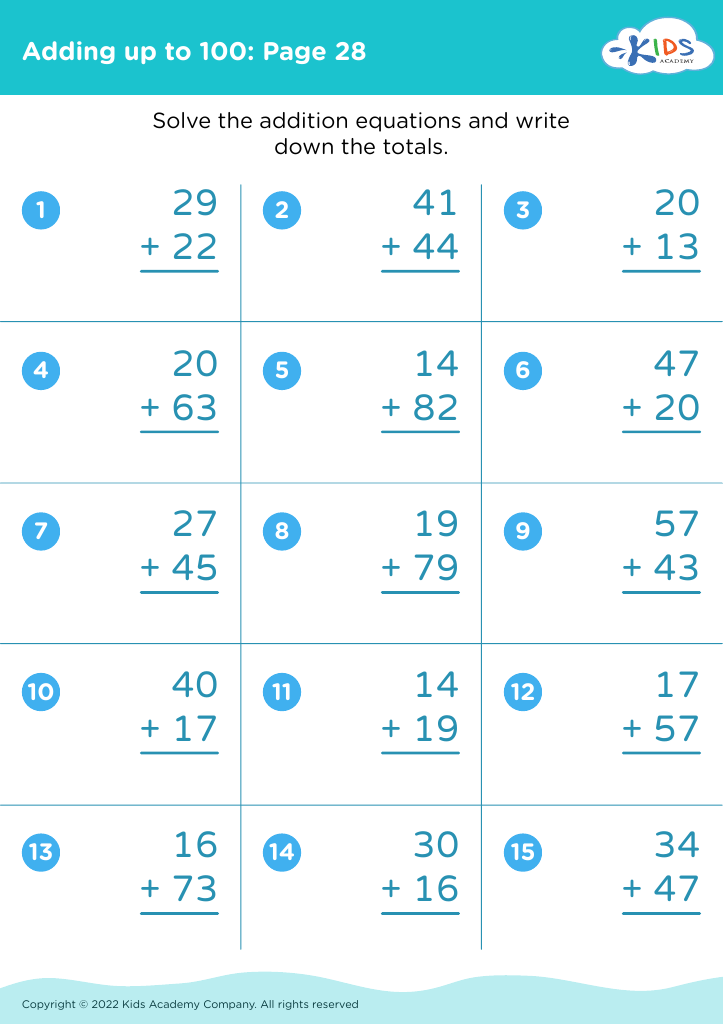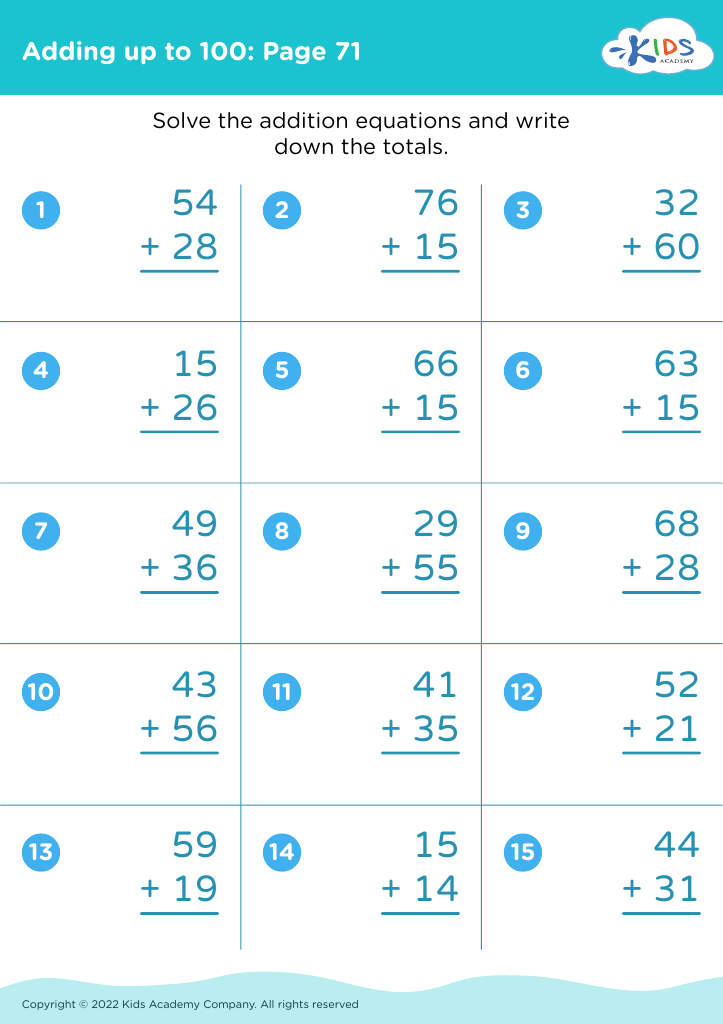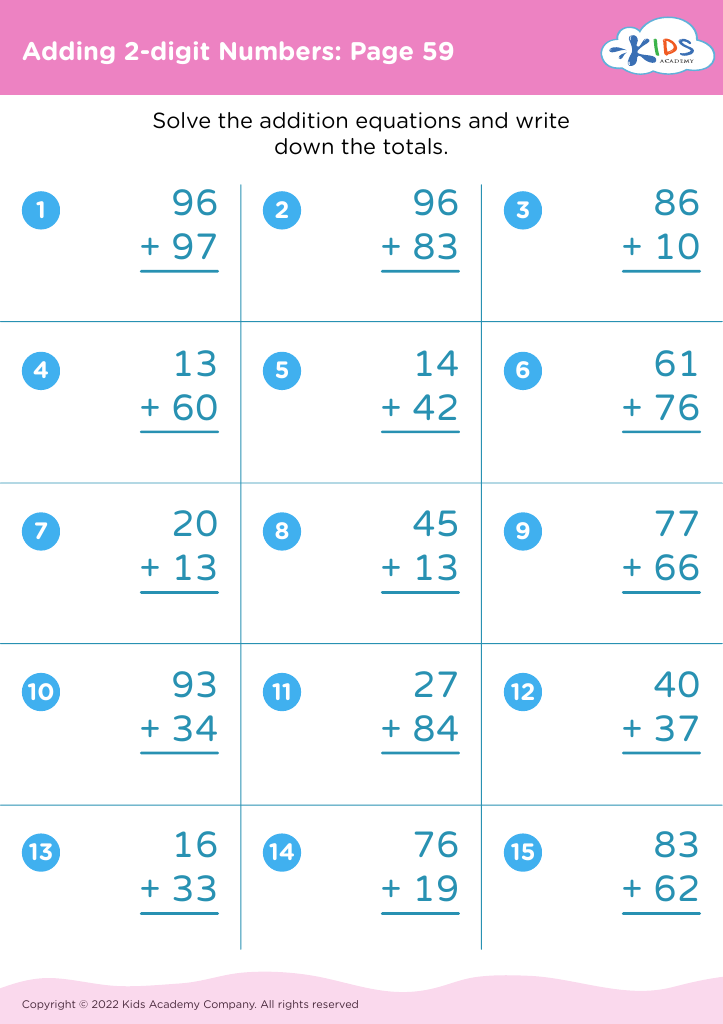Identifying equivalent fractions Addition Worksheets for Ages 3-7
7 filtered results
-
From - To
Discover exciting "Identifying Equivalent Fractions" addition worksheets to boost your child's math skills! Designed for ages 3-7, these vibrant and engaging worksheets simplify the concept of equivalent fractions via fun addition exercises. Perfectly tailored to spark young learners' curiosity, the activities build a strong foundation in early math competencies. Ideal for both classroom and at-home learning, our printable worksheets make mastering equivalent fractions a delightful adventure. Encourage your child to explore fractions confidently while developing critical thinking and problem-solving skills. Visit Kids Academy to access our educational resources that make learning fun and impactful!
For children aged 3-7, grasping the concepts of equivalent fractions and basic addition is crucial, as these foundational skills play a significant role in their overall mathematical development. At such a young age, learning to identify equivalent fractions helps children understand the idea that different-looking fractions can represent the same portion of a whole, thereby developing their number sense and fraction reasoning.
Introducing basic addition alongside equivalent fractions builds a strong arithmetic foundation. Caring parents and teachers should prioritize these concepts because they pave the way for more complex math skills, like multiplication, division, and algebra, which children will encounter in the future. Early exposure to these topics cultivates problem-solving abilities, logical thinking, and cognitive flexibility, which are all essential for academic success.
Moreover, engaging with these concepts early on helps diminish math anxiety, promoting a positive attitude toward mathematics. Fun, hands-on activities or visual aids, like fraction pies and number lines, can make these lessons enjoyable and relatable. By recognizing the importance of early mathematical engagement, parents and teachers ensure that children develop confidence and proficiency in math, setting the stage for lifelong learning and academic achievement.






















